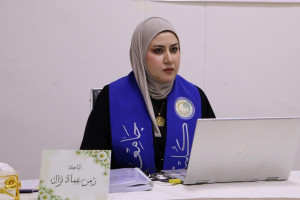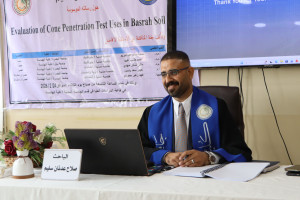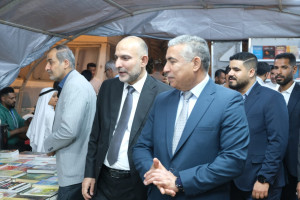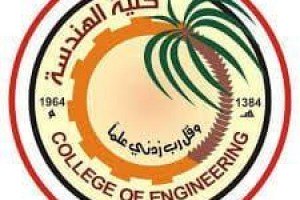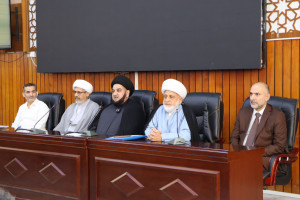
I discussed a master’s thesis at the College of Engineering at the University of Basrah (a comparison of methods for estimating groundwater recharge in the Safwan - Zubair region in southern Iraq)
The thesis presented by the student Nawar Abbas Kazem included groundwater recharge in the Safwan - Zubair area with a total area of about 200 km. This region is considered one of the most important agricultural areas in the city of Basra, southern Iraq. Four methods were used to estimate groundwater recharge, water balance, inverse modeling, fluctuation WTF water level and CMB chloride mass balance
Where the water balancing method was established on the basis of the balance between the internal and external waters in the forest, the climate parameters were used from the Al-Narjisiya weather station for the period 2013-2014, where the nutrition value was (20.11) % of the total rainfall
The method of groundwater level fluctuation was applied in this study. This technique relies on the hypothesis that the rise in the water level is due to the arrival of water to the groundwater level and that rain is the only source of groundwater recharge.
The thesis aims to estimate the groundwater recharge in the Safwan-Zubair region as a result of the increasing demand for groundwater, where there is an urgent need to assess the groundwater recharge in the study area, especially at this time when the country suffers from water scarcity.
The thesis concluded that the comparison between the groundwater recharge values for previous studies (26-15%) and the results of the current study
Also, the method of water balancing, fluctuation of the groundwater level and inverse modeling are the most acceptable methods.


